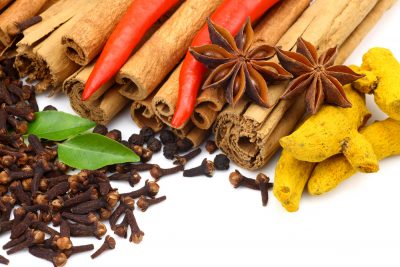Depression and anxiety afflict a staggering number of Americans.
The Anxiety and Depression Association of America (yes that IS a real Association) reports that anxiety disorders affect more than 40 million people, and that depression is the leading cause of disability in the United States for individuals between the ages of 15 and 44.[1]
Over 360 million prescriptions for antidepressants and anti-anxiety medications are filled each and every year
Over 360 million prescriptions for antidepressants and anti-anxiety medications are filled each and every year. But here’s an even more staggering statistic: over 80% of people who exhibit symptoms of depression and other mood disorders are not receiving any form of treatment.[2] This means that the number of Americans suffering from anxiety and depression is almost certainly far higher than pharmaceutical tallies suggest.
Worst of all, pharmaceutical intervention doesn’t seem to be working—in fact, depression diagnoses are increasing by as much as 20% every year.[3]
In past articles, we’ve discussed some of the many downsides of antidepressants and anxiolytics: their dangerous side effects, their questionable efficacy, and even the possibility that they make mood disorders worse in the long run.
If you’ve ever been depressed or stricken with anxiety, you know that the imperative to fix it immediately is overwhelming. People need something to aid the process of healing, if only until they regain the fortitude required to make more overarching lifestyle modifications. Hence the immense popularity of pharmaceuticals.
There are options that have been proven just as effective and far safer than pharmaceuticals for alleviating depression
Luckily, there are options that have been proven just as effective and far safer than pharmaceuticals. Best of all, many of them are probably already in your kitchen spice rack.
The world’s most powerful mood-balancing spices
An increasing amount of research is reminding us that some of the most powerful medicines we could ask for are right in our own kitchens. The following spices top the evidence-based list of natural depression and anxiety remedies.
Turmeric has more than proven its worth as an effective remedy for depression. One randomized controlled trial demonstrated that curcumin is as effective as a leading prescription antidepressant,[4] and another double-blind, placebo-controlled study demonstrated that 1000mg of curcumin daily is significantly more effective than placebo for alleviating depression.
Even if you’re taking antidepressants and aren’t ready to phase them out, turmeric can help—researchers found that supplementing an antidepressant regimen with curcumin significantly decreased depression rating scores.[5] Last but not least, turmeric significantly decreases cortisol levels and inflammation, both of which are key contributing factors for depression, anxiety, and other mental health disorders. For best results, use a specially formulated liposomal turmeric product.
Thyme is packed with lithium, a mineral that acts as a critical co-factor for the production of tryptophan (which helps modulate serotonin levels, balance mood, optimize energy metabolism, and regulate sleep cycles). Lithium is also used pharmaceutically to treat bipolar disorder and other instances of severe mood imbalance. While excess lithium consumption carries side effects, thyme and other food sources contain ideal levels for natural mood maintenance.
Lavender, the relaxing and soothing aroma of which is well-known, is an especially powerful anti-anxiety remedy when used as an essential oil.[6] A word of caution, though: while essential oils are safe and effective natural remedies, it’s important to remember that they’re powerful. Use them like you would any medicine (carefully, and with respect), and pay close attention to how your body responds.
Rosemary contains potently antidepressant and anti-anxiety compounds, such as rosmanol, cirsimaritin, and salveginin. Studies have shown that both raw rosemary (made into a tea)[7] and these extracted compounds[8] offer powerful relief from anxiety and depression, due to the plant’s ability to modulate and balance the nervous system.
Researchers also found that rosemary essential oil lowered anxiety test scores,[9] especially when combined with lavender essential oil.
Cinnamon has been used for thousands of years to treat a variety of health conditions. Research has shown that Ceylon cinnamon (as opposed to cassia cinnamon) has nervous-system-balancing properties that can help treat neurological and mood disorders.[10] Another study demonstrated that just smelling cinnamon can boost cognitive function and balance nervous system function.[11]
Saffron is such a powerfully antidepressant spice that some practitioners of Eastern medicine even refer to it as “the spice of happiness.” Mainstream medical researchers have also weighed in on the subject, and have come to a similar conclusion.
Multiple randomized, placebo-controlled trials have shown that saffron (particularly crocin, its main active ingredient) increases the efficacy of pharmaceutical antidepressants when they are taken in conjunction with one another,[12] and even that saffron on its own is just as effective as leading antidepressants (without any of the side effects).[13] Finally, a meta-analysis of clinical trials concluded that saffron is an effective treatment for major depressive disorder.[14]
Vitamin B12 Vitamin B-12 can be good for anxiety if you have a B-12 deficiency. Having low levels of vitamin B-12 can contribute to anxiety. When you have anxiety, you feel fearful and apprehensive.
Resources
[1] https://www.adaa.org/about-adaa/press-room/facts-statistics
[2] http://www.healthline.com/health/depression/statistics-infographic
[3] Ibid.
[4] https://www.ncbi.nlm.nih.gov/pubmed/23832433
[5] https://www.ncbi.nlm.nih.gov/pubmed/26066335
[6] https://www.ncbi.nlm.nih.gov/pubmed/19962288
[7] https://www.ncbi.nlm.nih.gov/pubmed/25910439
[8] https://www.ncbi.nlm.nih.gov/pubmed/26626245
[9] https://www.ncbi.nlm.nih.gov/pubmed/19258850
[10] https://www.ncbi.nlm.nih.gov/pmc/articles/PMC4003790/
[11] http://connection.ebscohost.com/c/articles/16701089/cognitive-enhancement-through-stimulation-chemical-senses
[12] https://www.ncbi.nlm.nih.gov/pubmed/25484177
[13] https://www.ncbi.nlm.nih.gov/pubmed/24289892






